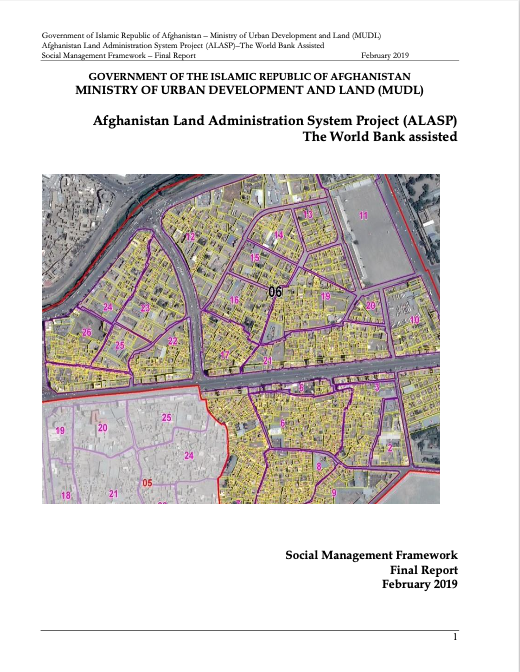Afghanistan Land Administration System Project (ALASP)
The Afghanistan land sector is plagued by a multitude of problems linked to weak governance, corruption and lack of capacity. There are competing claims to land, widespread conflicts, resultant landlessness and poverty. Other issues are limited availability of undisputed farmland, difficulties in accessing grazing lands and many disputes over pasture lands.










